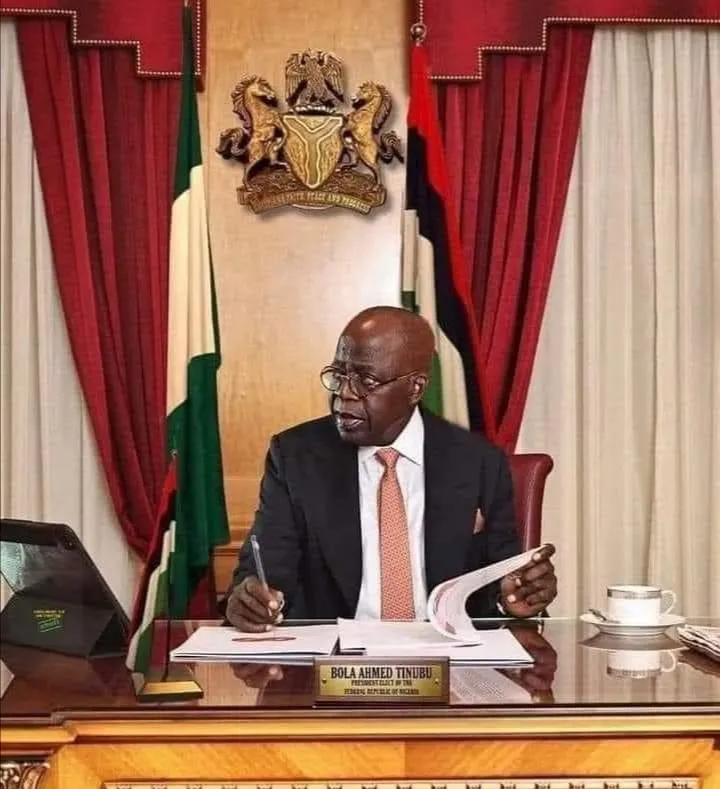By – Wale Adebanwi
Pennsylvania, July 17, 2024 – As the intellectual class contested, overtly and covertly, the attempt by the military to dismiss or destroy the collective will of Nigerians, the social and cultural ferment that defined the second half of 1980s and 1990s Nigeria represented the last chapter of a country that once existed: a country in which the quality of public debate not only pointed to the existence of a community of public intellectuals that was connected to a reflective public, but also one in which the value as well as the parameters of public deliberations easily exposed the limitations of power as well as of those in power.
It was a public sphere which promoted and valued a solid and deeply penetrating discourse about social issues that a hashtag could not capture and one in which complex matters of public good could not be reduced to the evanescence of Instagram.
One of the public intellectuals who exhibited the best of that public spirit and manned the barricades in that era was a man of great learning, Professor Olatunji Dare.
As the scholar, university teacher, author, columnist, prose-stylist, satirist, editorialist, and perhaps the most celebrated chairman of the famed editorial board of The Guardian, celebrates his 80th birthday this July 17, 2024, it is difficult to overcome the temptation of using the man’s life and times to reflect on what happened to the country we once had: a country where public intellection defined the public sphere, and one in which a reflective intellectual class, not the reflexive one of the age of social media, had an organic link with the popular masses and the different organizational expressions of the public interest, from the labour union to youth and women groups.
In that age, the (wo)man of letters as a socio-political repairer was undoubtedly most crucial because of the havoc that the late military era visited on Nigeria.
In the sense in which it was cogently conceived by the Italian theorist, Antonio Gramsci, the critical elaboration that the intellectuals of that age engaged in was made more salient by their role in providing, particularly through their writings, the logical and ideological bases for an integral link between all the critical social forces that needed to come together to end military rule and save Nigeria from collapsing into the abyss of martial folly.
Apart from the university campuses, no other intellectual formation was more critical in that era than the newspaper press.
And no newspaper demonstrated this better than The Guardian in the late 1980s and early 1990s through its op-ed pages.
Under the initial overall leadership of one of the finest thinkers in Nigerian media history, Stanley Macebuh, and under Dare’s guidance of the op-ed pages, The Guardian defined what it meant to attempt to build a society based on reason, even under the most challenging martial terms.
Not only through his own writings, but also through his excellent management of the op-ed pages of The Guadian, Dare, one of the most thoughtful, deliberate, even-tempered, and fascinating editorial leaders that the country has ever produced, helped in fully demonstrating that the newspaper was serious about its mission as defined in the famous homage to Uthman Dan Fodio quote: Conscious nurtured by truth.
My generation of students of the famed Mass Communication Department which included Waziri Adio, Simon Kolawole, Allwell Nwanwko, and Lanre Issa-Onilu, missed Olatunji Dare at the University of Lagos by one year.
How unlucky we were! He left the department to join The Guardian at the end of the academic year that ended before we resumed in late 1988.
However, we were lucky to have been ‘taught,’ in fact, ‘trained’ remotely by him through his engaging and compelling prose on the pages of The Guardian.
What my generation and others learned from Dare was not taught only through the quality of his prose and his enthralling style, but also through the forceful, even if, often times, indirect ways in which he raised the most critical issues of social, political, and economic life.
Whether the matters were arising or miscellaneous, Dare delivered devastating critique of power and even powerlessness in our collective public life.
With humour and subtlety, he showed the absurdity of power and privilege.
At the same time, in a Marxian sense (though he was not dialectician in the Marxist tradition), he occasionally laughed at the failure of ordinary people to recognize their fundamental interests.
For most of the late 1980s and the early 1990s, Dare was content to poke fun at power and privilege in the hope that the redressive forces in civil and political societies would put an end to the shenanigans of the military in power.
In those years, his writings betrayed only occasional loss of patience with the reactionary bluster of those who sought to gloss over the most debilitating experiences of our national life.
However, with the annulment of the June 12, 1993, election, Dare seemed to have decided to retire satire to infrequent appearance in his contention with the nation-ending antics of General Ibrahim Babangida and his confederates.
The massive and still enduring destruction of the social fabric engineered by Babangida had reached an ‘impasse’ that forced more ‘straight talk’ from the famed satirist.
This is what led to the ‘Diary of Debacle’ in which he chronicled the country’s slide into chaos before and after General Sani Abacha seized power and attempted to impose medieval fascism on the country.
Since then, he has been writing with more bluntness, as evident in his weekly column in The Nation. Yet, he has not totally abandoned his wry but devastating humour aimed at the perfidious rogues in charge of our commonwealth.
I got to know him personally in the post-Abacha era. By then, he had been forced into his exile by a combination of factors. It has been such a joy to know him.
When I had the privilege of editing a book in his honour, Public Intellectuals, the Public Sphere, and the Public Spirit: Essays in Honour of Olatunji Dare, it was easy to find people of distinction who were willing to join the celebration of his life and times.
Olatunji Dare is not just a professional beacon, he is also a great human being: considerate and compassionate.
Not for him the churlish self-praise and cheap superciliousness that sometimes overcome the accomplished.
A decent and dignified man who describes himself as a “lapsed Anglican,” Dare still exhibits what believers would call “the fruits of the spirit” – love, joy, peace, patience, kindness, goodness, faithfulness, gentleness, and self-control.
Beyond his profound intellectual and professional gravitas, through his deep reserve of dignity and repairing spirit, Dare has taught his younger admirers a compelling lesson in how one can reconcile oneself with the mathematics of life that never add the decimal points in the right places.
This is why at 80 we celebrate Olatunji Dare not only for his multi-dimensional contributions to social good as a man of letters; a teacher, journalist, writer, editorialist, satirist, and citizen of the world, but also, and perhaps more importantly, because the life he has lived is one that strengthens faith in our collective humanity.
*Adebanwi, the writer, teaches at the University of Pennsylvania.





